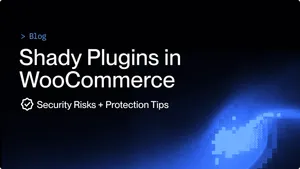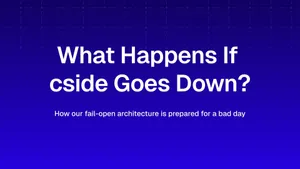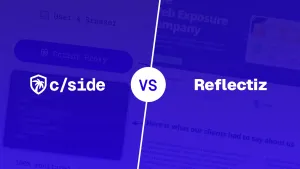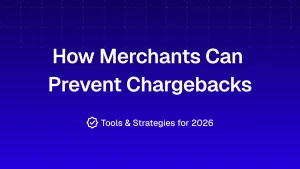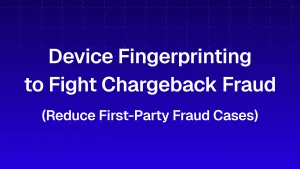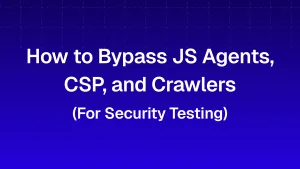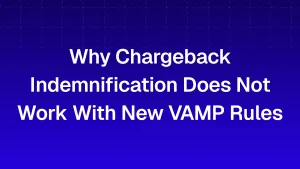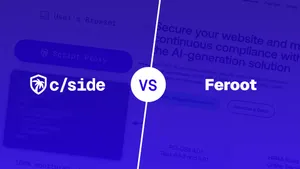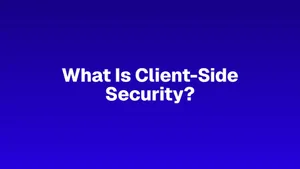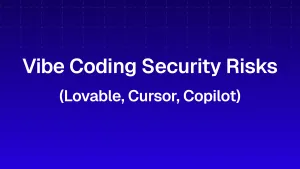This article takes an honest look at the features of Akamai Page Integrity Manager.
Since you’re on the cside website, we acknowledge our bias. That said, we’ve built our case honestly and based our analysis on publicly available information, industry information, and our own or our customers' experiences.
If you want to verify their claims yourself, please navigate to their product pages.
| Criteria | c/side | Akamai Page Integrity Manager | Why It Matters | What the Consequences Are |
|---|---|---|---|---|
| Approaches used | Proxy | JS-Based Detection | ||
| Real-time Protection | Attacks can occur between scans or in the excluded data when sampled | Delayed detection = active data breaches | ||
| Full Payload Analysis | Ensures deep visibility into malicious behaviors within script code itself | Threats go unnoticed unless the source is known on a threat feed | ||
| Dynamic Threat Detection | Identifies attacks that change based on user, time, or location | Missed detection of targeted attacks | ||
| DOM-Level Threat Detection | Tracks changes to the DOM and observes how scripts behave during runtime | Unable to identify sophisticated DOM-based attacks | ||
| 100% Historical Tracking & Forensics | Needed for incident response, auditing, and compliance | Needed for incident response, auditing, and compliance | ||
| Bypass Protection | Stops attackers from circumventing controls via DOM obfuscation or evasion | Stealthy threats continue undetected | ||
| Certainty the Script Seen by User is Monitored | Aligns analysis with what actually executes in the browser | Gaps between what's reviewed and what's actually executed | ||
| AI-driven Script Analysis | Detects novel or evolving threats through behavior modeling | Reliance on manual updates, threat feeds or rules = slow and error-prone detection | ||
| QSA validated PCI dash | The most reliable way to ensure a solution is PCI compliant is to conduct a thorough audit by an independent QSA | Without QSA validation, you rely entirely on marketing claims, which could result in failing an audit | ||
| SOC 2 Type II | Shows consistent operational security controls over time | Lacks verified security control validation, making it a risky vendor | ||
| PCI specific UI | An easy interface for quick script review and justification via one click or AI automation | Mundane tasks and manual research on what all the scripts do, which takes hours or days |
What is Akamai Page Integrity Manager?
Akamai Page Integrity Manager is a client-side security solution that monitors and analyzes JavaScript running in users’ browsers to detect malicious activity, like digital skimming, formjacking, and Magecart-style attacks. It focuses on identifying suspicious behavior from third-party scripts and alerting when potentially harmful actions are found.
How Akamai Page Integrity Manager works
Akamai’s Page Integrity Manager is mainly able to list, allow, and block scripts based on previous intel and known issues. They offer great visibility of the script sources, but no insight into the actual payload of a script. This means they can't block scripts in real-time, before needing confirmation after alerting you.
Akamai Page Integrity Manager injects a JavaScript file into the of a website, which runs in the user’s browser during live sessions. The script monitors the execution of all other scripts on the page.
Users need to set up a policy management system that allows them to allowlist or block specific scripts or domains. This is combined with a threat feed to check which sources are deemed safe and malicious.
This is a reactive solution. Akamai Page Integrity Manager can not actively block malicious scripts before they execute. Blocking relies on predefined allow/block policies or manual response after detection, meaning new attacks need to be found, understood and adjusted for in order to be properly detected and blocked next time.
How cside goes further
Cside primarily offers a hybrid proxy approach which sits in between the user session and the 3rd party service. It analyzes the served dependencies code in real-time before serving it to the user.
This allows us to not only spot advanced highly targeted attacks and alert on them, cside also makes it possible to block attacks before they touch the user's browser. It also checks the box for multiple compliance frameworks, including PCI DSS 4.0.1. We even provide deep forensics, including if an attacker bypasses our detections. Allowing you to more tightly scope the size of the incident us to make our detection capabilities better every day. No other vendor has this capability.
We believe this is the most secure way to monitor and protect your dependencies across your entire website. We've spent years in the client-side security space before we started cside, we've seen it all, this is the only way you can actually spot an attack.
Sign up or book a demo to get started.



